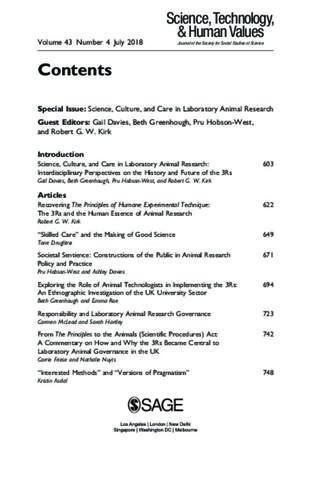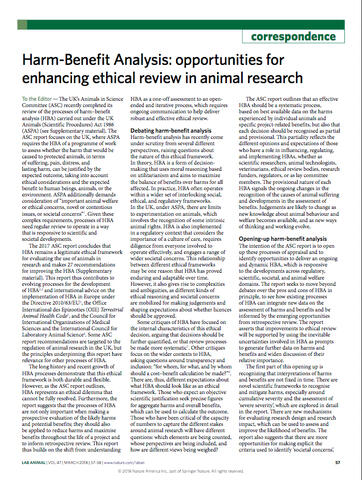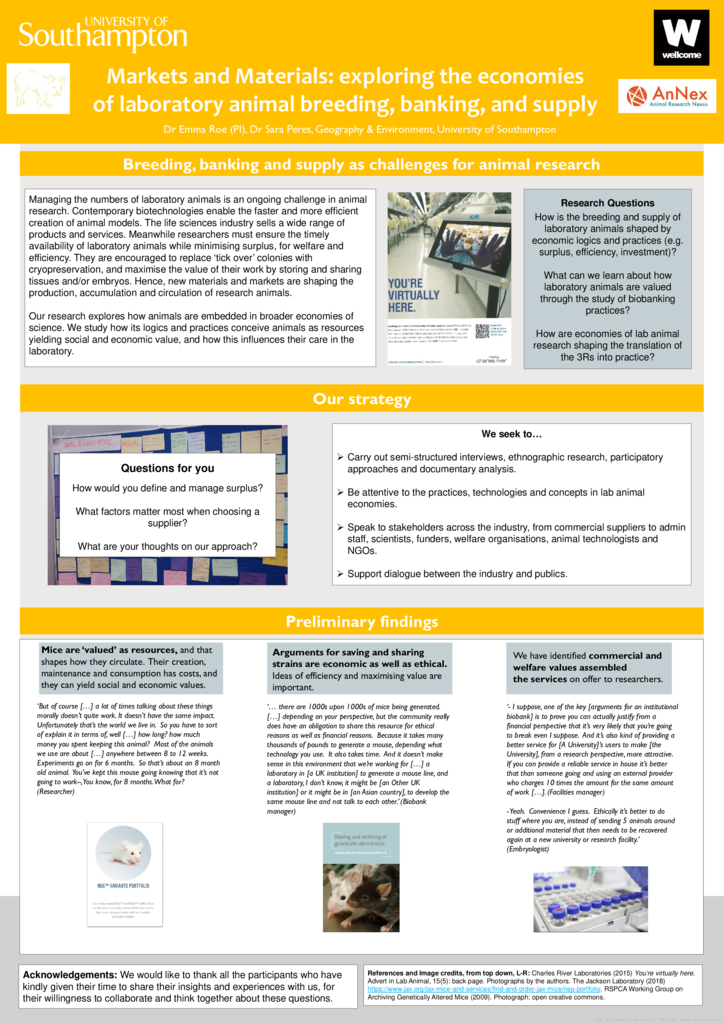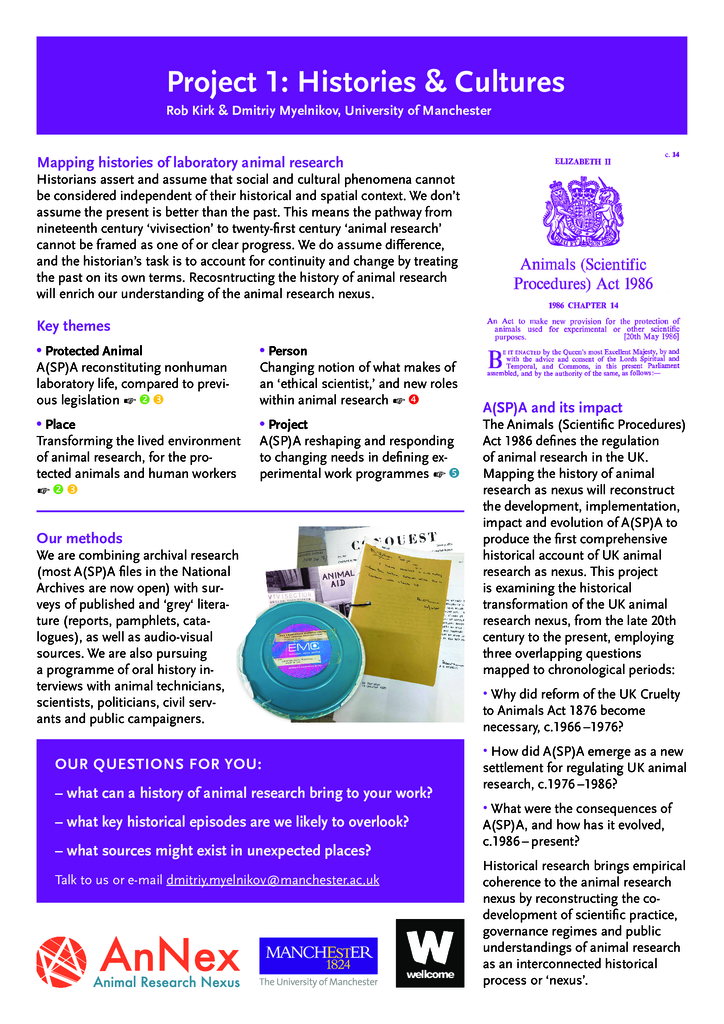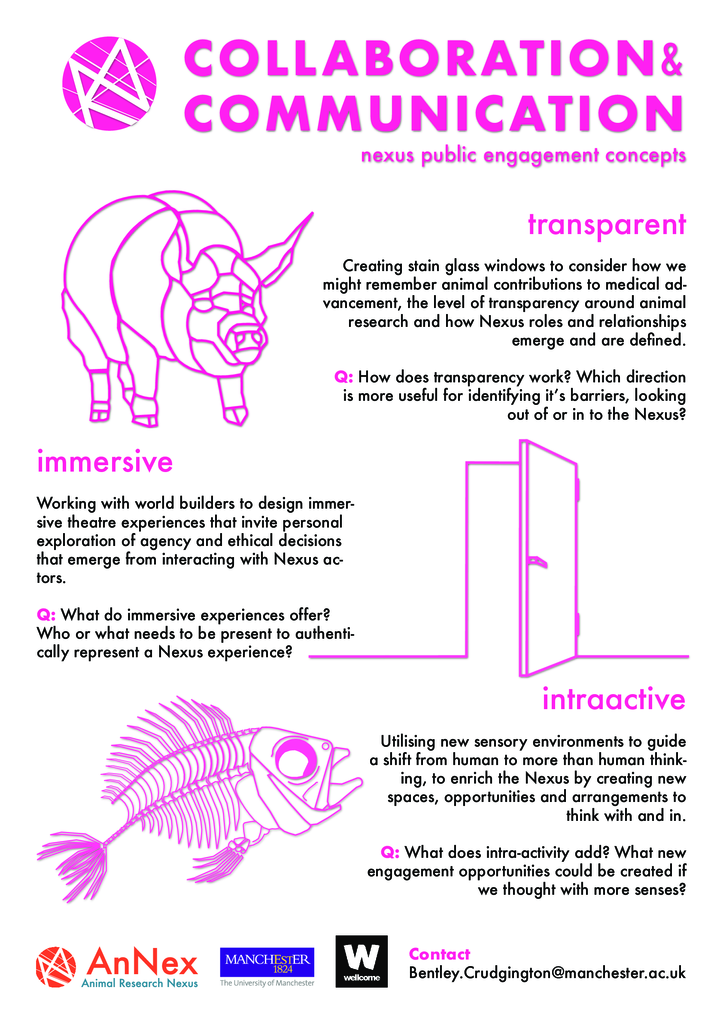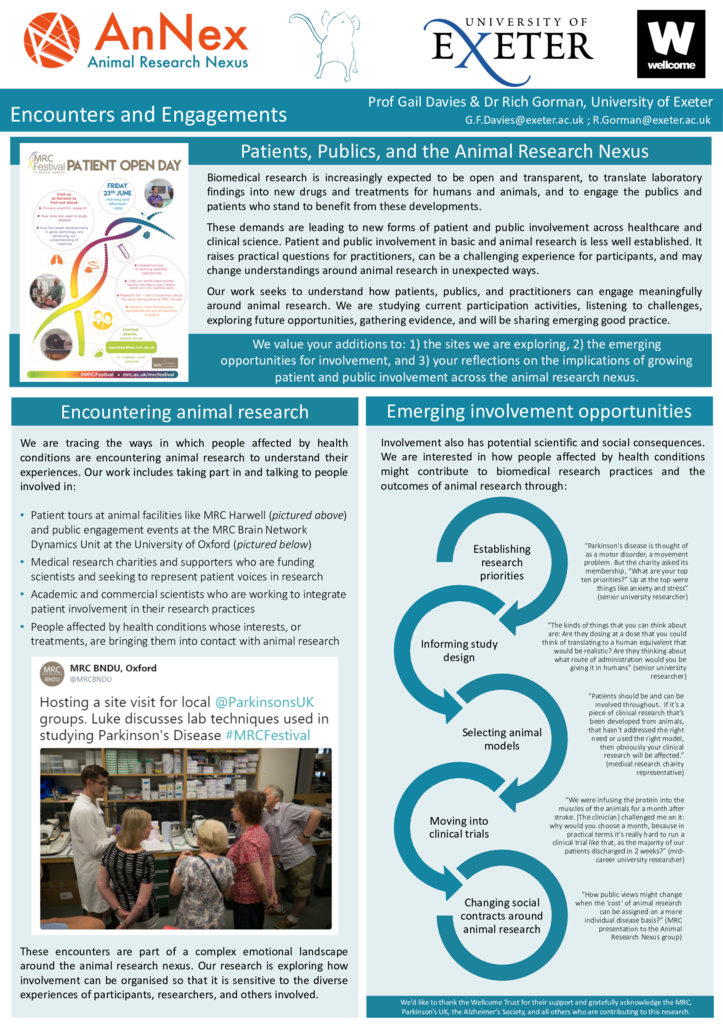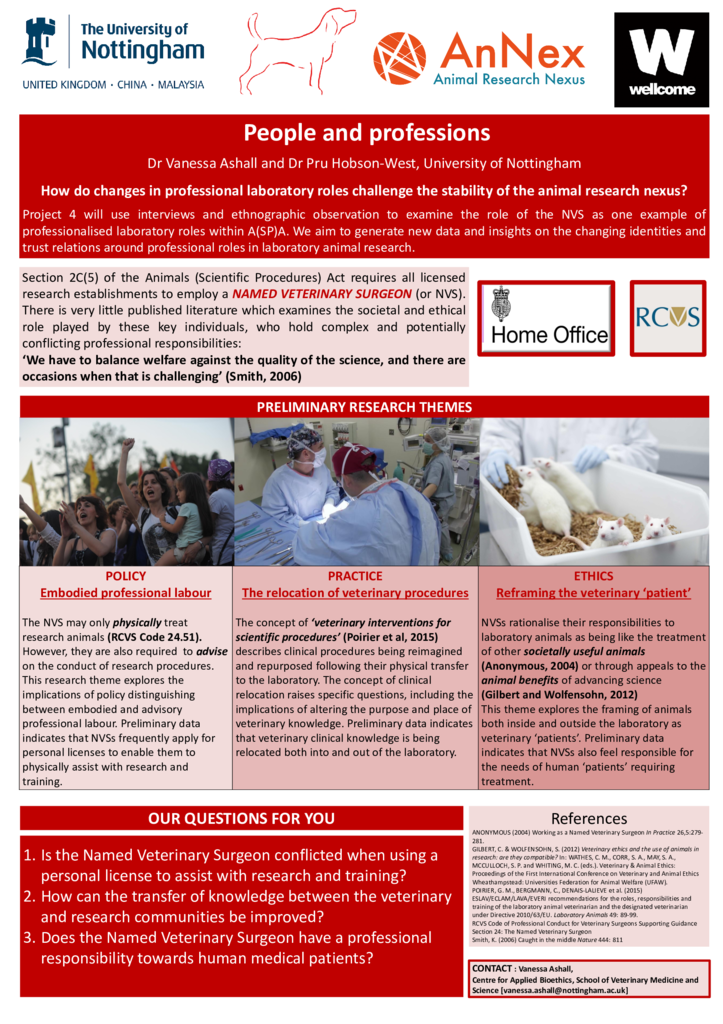Publications
The Routledge Companion to Animal-Human History provides an up-to-date guide for the historian working within the growing field of animal-human history. This book chapter by Rob Kirk suggests that to understand animal–human history we would do well to start with the role of animals in science.
This special issue of Science, Technology and Human Values was guest edited by members of the AnNex team. It explores the changing situation of the 3Rs through five papers that explore how the 3Rs principles emerged, chart the ways they are enacted in practice, and reflect on their future challenges.
This Nature correspondence note, written by Gail Davies, explains the principles of the UK’s Animals in Science Committee (ASC) review of the processes of harm–benefit analysis (HBA) carried out under the UK Animals (Scientific Procedures) Act 1986 (ASPA).
This poster discusses the management of animal numbers in our research examining the breeding, supply, and biobanking of lab animals within the economies of biomedical science.
This poster explains our work on the history of British laboratory animals, focusing on the origins, implementation, and impact of the Animals (Scientific Procedures) Act 1986 through newly-available archive sources, published literature, ephemera, and a programme of oral history interviews.
This poster presents through provocations from our public engagement approach, which seek to weave in new perspectives, allow new communities to form and meaningfully connect, so we may collaboratively face emerging challenges for science and society together.
This poster introduces investigations into the implications of laboratory animal rehoming on stakeholders, ethical and regulatory issues, and the relations people have with animals both inside and outside of the laboratory space.
This poster explains our research exploring how patients, publics, and practitioners might engage meaningfully around animal researc and identifying how people affected by health conditions might contribute to the research practices that potentially involve animal research.
The poster describes our focus on professional laboratory roles, using the example of the Named Veterinary Surgeon, exploring the complex and potentially conflicted responsibilities of these individuals.
This poster introduces work exploring how publics understand animal research using the written accounts of voluntary correspondents to the Mass Observation Project (MOP), which will seek to capture the sociocultural contexts that inform ethical and technoscientific judgements.

